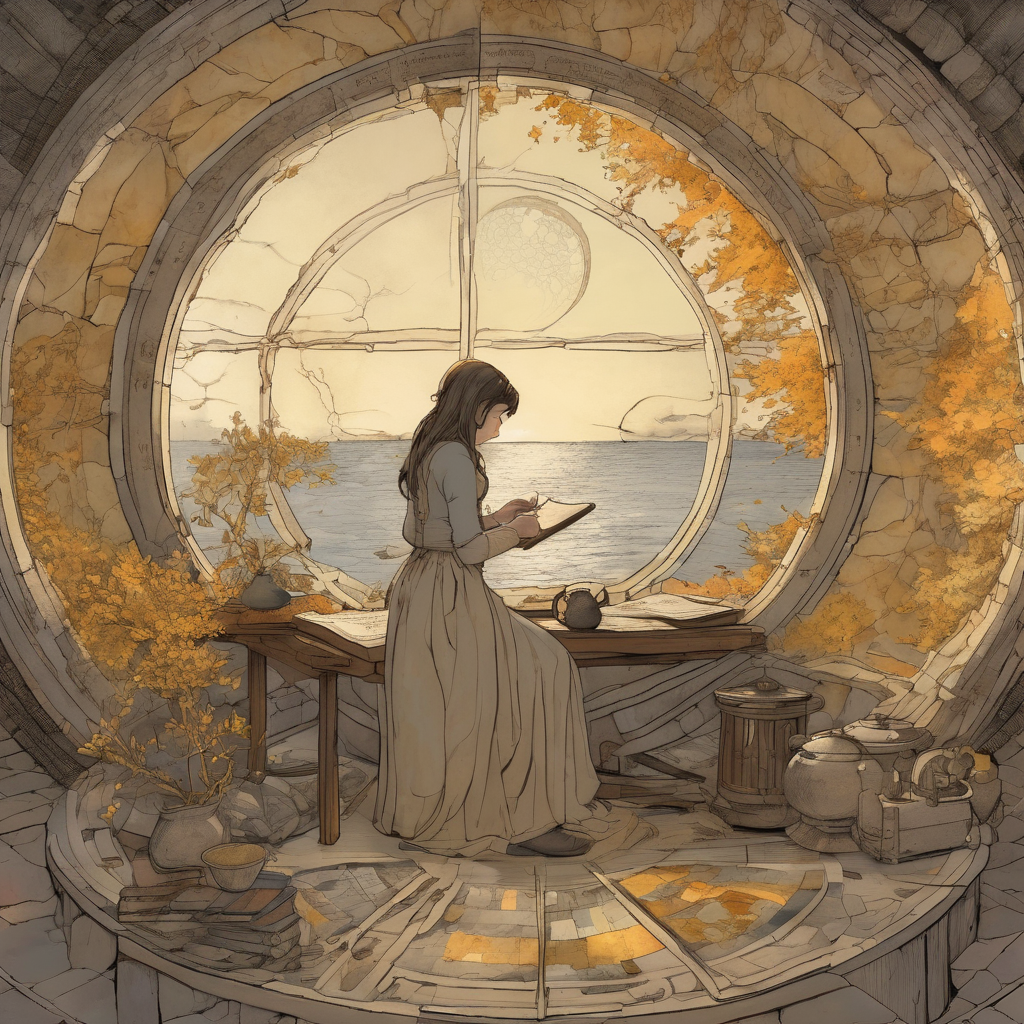The observatory stood empty except for Mira, who traced her fingers across the yellowed parchment her father had left behind. Not a map of lands or seas, but something far stranger—a chart of human longings, with meridians marking the boundaries between what people claimed to want and what their hearts truly craved.
Her father had been the last of the old cartographers, those who mapped not just geography but the invisible territories of meaning. Before his disappearance, he’d whispered about a final project, something about charting the space between authenticity and performance, between the sustainable and the ephemeral.
The door creaked. Abbas entered, carrying two cups of tea infused with adaptogens he’d harvested from the rooftop garden. His presence had become routine these past months—ever since the city council had declared her father’s workshop a heritage site, frozen in time like an insect in amber.
“Any progress?” he asked, though they both knew the question was really about her, not the maps.
“He left notes about mapping mindfulness,” she said, showing him a diagram where breathing patterns formed topographical lines. “But here—” she pointed to a blank space on the chart, “—something’s missing.”
Abbas studied the void. In his former life as a derivatives trader, before the great simplification, he would have called it a pricing inefficiency. Now he saw it differently. “It’s shaped like silence,” he said.
Mira nodded. Her father had always said that resilience wasn’t about bouncing back but about bending into new shapes. The missing piece wasn’t missing at all—it was a doorway.
She pulled out her father’s final letter, which she’d read so many times the words had become muscle memory. But tonight, holding it up to the candlelight, she saw what she’d missed: tiny perforations forming a constellation. When she overlaid it on the map, the holes aligned with specific coordinates.
“These aren’t places,” Abbas breathed. “They’re moments.”
The first coordinate led them to the old market square at dawn, where vendors sold vegetables grown in vertical gardens. There, pressed between cobblestones, they found a brass key. The second took them to the immigration office, where her father had once worked helping refugees navigate bureaucratic labyrinths. Behind a loose brick: another key.
Seven keys in total, each discovered at the intersection of past and present, of leaving and arriving. The final coordinate pointed to their own location—the observatory—but at a specific time: the autumn equinox, tonight, when day and night balanced perfectly.
Mira arranged the keys in the pattern from her father’s map. They didn’t fit into any lock but instead formed a kind of compass when connected by silver thread from her mother’s sewing box. The compass needle didn’t point north but inward, toward something unnameable.
“He wasn’t mapping the world,” Mira realized. “He was mapping the space between worlds—the place where immigrants carry their homeland in their hearts, where ancient practices meet modern needs, where sustainability means sustaining not just the earth but the soul.”
The compass began to warm in her hands. The walls of the observatory became transparent, revealing not the city beyond but countless overlapping cities, all the versions that had existed and might exist. Her father stood in one of them, young and old simultaneously, still drawing his impossible maps.
“You found it,” he said, his voice coming from everywhere and nowhere. “The territory that exists in every generation—the choice between holding on and letting go, between what we inherit and what we create.”
Abbas reached for Mira’s hand. “Is he really there?”
“He’s as there as anything else,” she said, understanding finally that her father’s maps had never been about finding locations but about locating yourself in the infinite geometry of being human.
The compass dissolved into light, leaving only warmth in their palms. The observatory walls solidified again, but the room felt different—larger somehow, as if it now contained all the spaces they’d discovered.
Mira picked up her father’s pen. She had her own maps to draw now, charts of the unmappable distance between loss and discovery, between the world we’re given and the one we choose to see. Abbas ground fresh ink from stones they’d gathered at each coordinate, creating a color that had never existed before.
Together, they began to map the only territory that truly mattered: the one that emerges when we stop searching for what’s missing and start seeing what’s there.

Leave a Reply